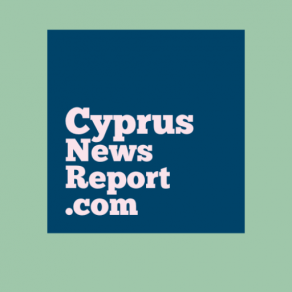Debt Protester Maria Karaoli Hospitalised
January 11, 2021Debt protester Maria Karaoli was hospitalised this afternoon after her health deteriorated following three weeks on hunger strike.
Maria Karaoli made history by being the first debt hunger striker in Cyprus and says her strength and determination comes from the love she has for her severely autistic son.
“If I am hospitalised, after I recover I will return to continue my protest,” she said.
Petitioning the authorities and President Anastasiades
On December 21 of last year, Mrs. Karaoli set up camp outside the Presidential Palace with a demand for President Anastasiades and the authorities to investigate Bank of Cyprus for predatory lending. At the centre of her claims are a dispute over the family company’s debts and the future of her autistic son and elderly father.
Disputes with the Bank of Cyprus may lead to the loss of the family’s livelihood – immovable property, she maintains.
Chr. Karaolis Constructions and Developments started in the 1960’s and built extensively through Limassol and the surrounding region. In 2013, like many other construction companies, they ran into trouble after Marfin Popular Bank imploded. Their corporate debt was eventually transferred to Bank of Cyprus and they started negotiations to settle it with the sale of properties.
Debt for equity
By September 2017, they had reached an agreement with the bank to sell some property in exchange for a loan settlement.
“I have this agreement, it came by email,” said Mrs. Karaoli.
“They invited us on Monday to sign the restructuring agreement at 4pm. At 10am on Monday, their receiver entered our office and foreclosed on our entire business,” she adds.
“Over the weekend, when they realised we had found a buyer after a lot of effort on our side, they decided they didn’t need us anymore. The receiver, Michalis Avraam, stepped in to do the sale and arrange the transfer…The banks employ him to liquidate companies,” she said.
“They froze assets worth much more than the loan,” added Mrs. Karaoli.
In response to Mrs. Karaoli’s claims, the receiver Michalis Avraam said: “It’s my hope that in the new year, the parties will reach a resolution. I sympathise with Mrs Karaoli but the facts are not as simple as they appear.”
Predatory lending
The Bank of Cyprus denies the predatory lending scenario. In the latest developments, a senior manager in the firm told CyprusNewsReport.com that there are no plans to evict the family and that there is an offer on the table.
“This is a complicated case. The story presented publicly is compelling but untrue. A fair, equitable and socially sensitive solution is possible but willingness to cooperate is necessary. The Bank continues to attempt contact with the customer and wishes to continue the multiple efforts to solve the issue. However, but we are firm on that we will not use depositors’ money to finance lavish lifestyles.”
But Mrs. Karaoli denies that the family business are strategic defaulters, saying that they were willing to cooperate and settle the company’s debt with the sale of properties.
“The bank did not deal with our case in good faith or follow EU rules. The banks in Europe have to follow 100 rules to restructure loans, but in Cyprus they do whatever they want,” says Mrs. Karaoli.
The spirit is able while the body is weak – I follow my spirit.
Maria Karaoli
After 20 days on hunger strike and another two days of eating the bare minimum for survival on her doctor’s orders, Mrs. Karaoli entered a more dangerous stage for her health. She has terrible headaches and has periods when she can’t stand up or walk. The fast exhausted her energy.
As her future hangs in the balance, she has gained support from other debtors on social media, who repeat the same stories of predatory lending. The banks take over property worth much more than the debt itself, leaving nothing for their family’s future.
“I predict there will be more poverty, more people without homes and nobody to care about our human rights,” said Mrs. Karaoli.
Banking laws
Trust in the banks takes blow after blow because of the lack of socially-sensitive and fair solutions to debt.
New banking laws were passed in 2015 with the express purpose of assisting companies with loans to avoid the worst consequences of the crisis.
These laws include restructuring rules, interest rate write-downs and other common sense approaches to vulnerable but viable companies. They were intended to protect consumers and the banking system but from Mrs. Karaoli’s story and other anecdotal information it appears that the lessons from the implosions of Popular Bank and the Cooperative Bank have not been learned.
In the case that a bank takes over more than the value of the loan, it falls under predatory lending which is illegal in the EU. Mrs. Karaoli says that the bank and administrator also added hundreds of thousands of Euros in legal fees, an amount that she disputes.
Credit institutions shall implement a fair and sustainable pricing policy with regard to restructured credit facilities. The objective of the pricing policy should be to minimise costs, fees and interest rates for borrowers…
Central Bank of Cyprus
Since the business negotiated to reach a loan settlement and found a buyer to settle their debt, there appears no reason for the family’s other assets to be frozen – the strategic defaulter argument simply doesn’t stand.
Destroying businesses by forced liquidations or disorderly wind-downs is also counter-productive to the economy at a time when jobs are desperately needed. Other businesses face similar treatment by the banks, meaning deep wounds to the economy’s resilience.
Cascade of ethical issues
There is a literal cascade of ethical and legal questions in this case.
Was the company under official receivership when the bank stepped in? Receivership and winding down a company requires the signatures of the directors.
Is the company under forced liquidation, administration, debt mediation or what? In complex debt scenarios, the Central Bank of Cyprus provides for a standstill period for corporates to deal with their creditors, was this tool used?
Did the bank do everything possible to restructure the loan fairly, particularly when it came to high interest rates? The Central Bank of Cyprus’ Arrears Management Directive of 2015 provides for multiple solutions to distressed company debtors.
Did everyone involved put the interests of Mrs. Karaoli’s autistic child as a priority?
Isn’t it a conflict of interest that the Cyprus state is a majority shareholder in Bank of Cyprus and at the same time the state would be responsible for ensuring a fair playing field for the consumers of banking services?
Did the bank follow in good faith the restructuring rules laid out by the European Central Bank and Cyprus Central Bank? Judging from Mrs. Karaoli’s desperate action to go on hunger strike, something went very wrong.
Bigger picture
The bigger picture is business sentiment. Confidence in the economy cannot be solid if the banking sector is seen to be taking advantage and profiteering from business’ vulnerabilities during crises. This is abuse of power and negative for the economy.
Cypriot banks are notorious for charging high interest rates and hidden costs and have made little to no effort to rectify this impression, all the while decrying non-performing loans.
Decision after decision against the biggest banks for misleading mortgage contracts, overcharging, hidden charges and other predatory lending behaviours have come out from the Consumer Protection Service and Financial Ombudsman, yet the practices persist to the detriment of the economy.
It’s clear that consumer rights must be boosted in order to balance the relationship and move towards a healthy banking sector and consumer sector with decent access to reasonably-priced financing.
Read our Ultimate Guide to Banking Consumer Rights in Cyprus.







